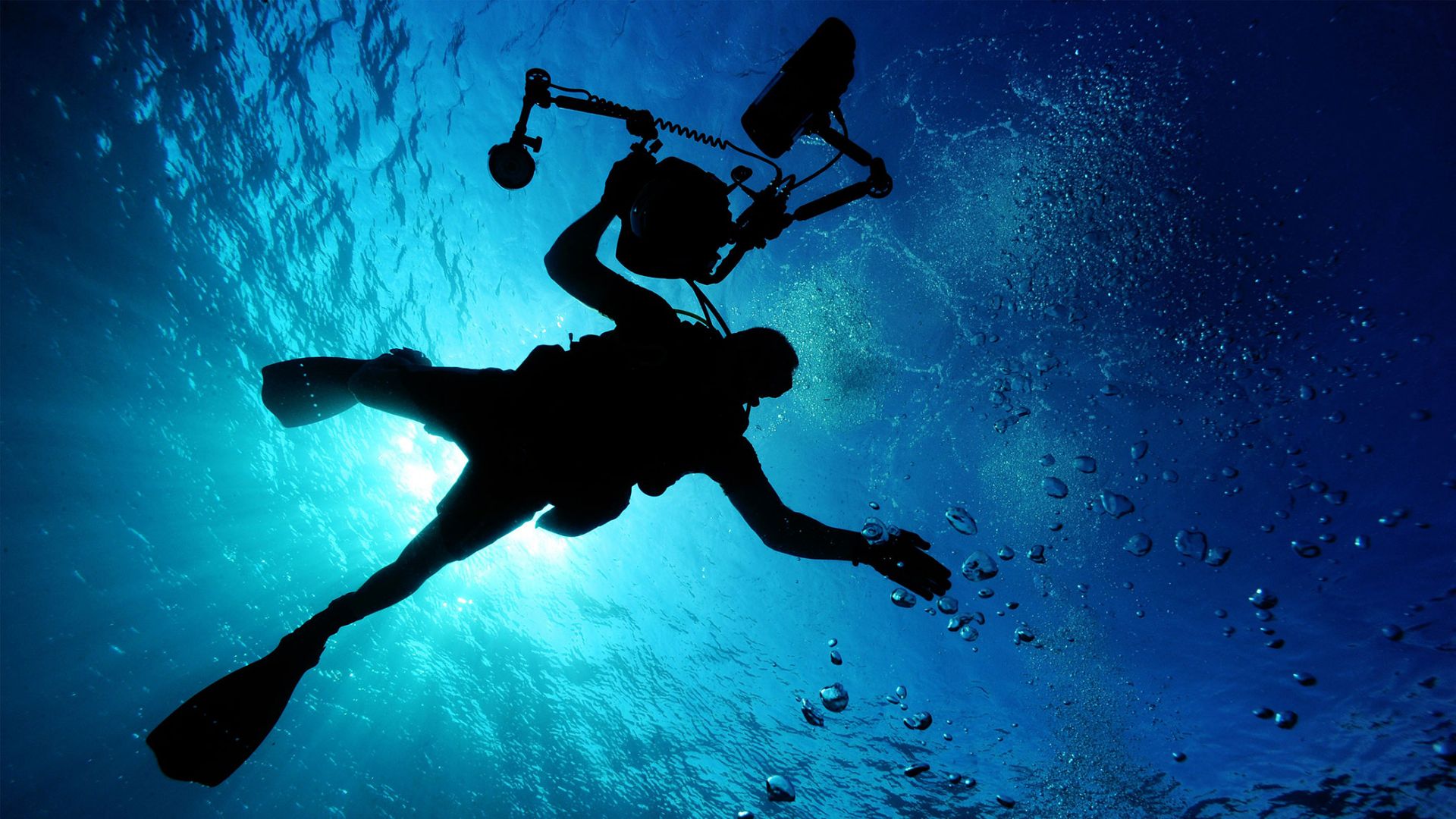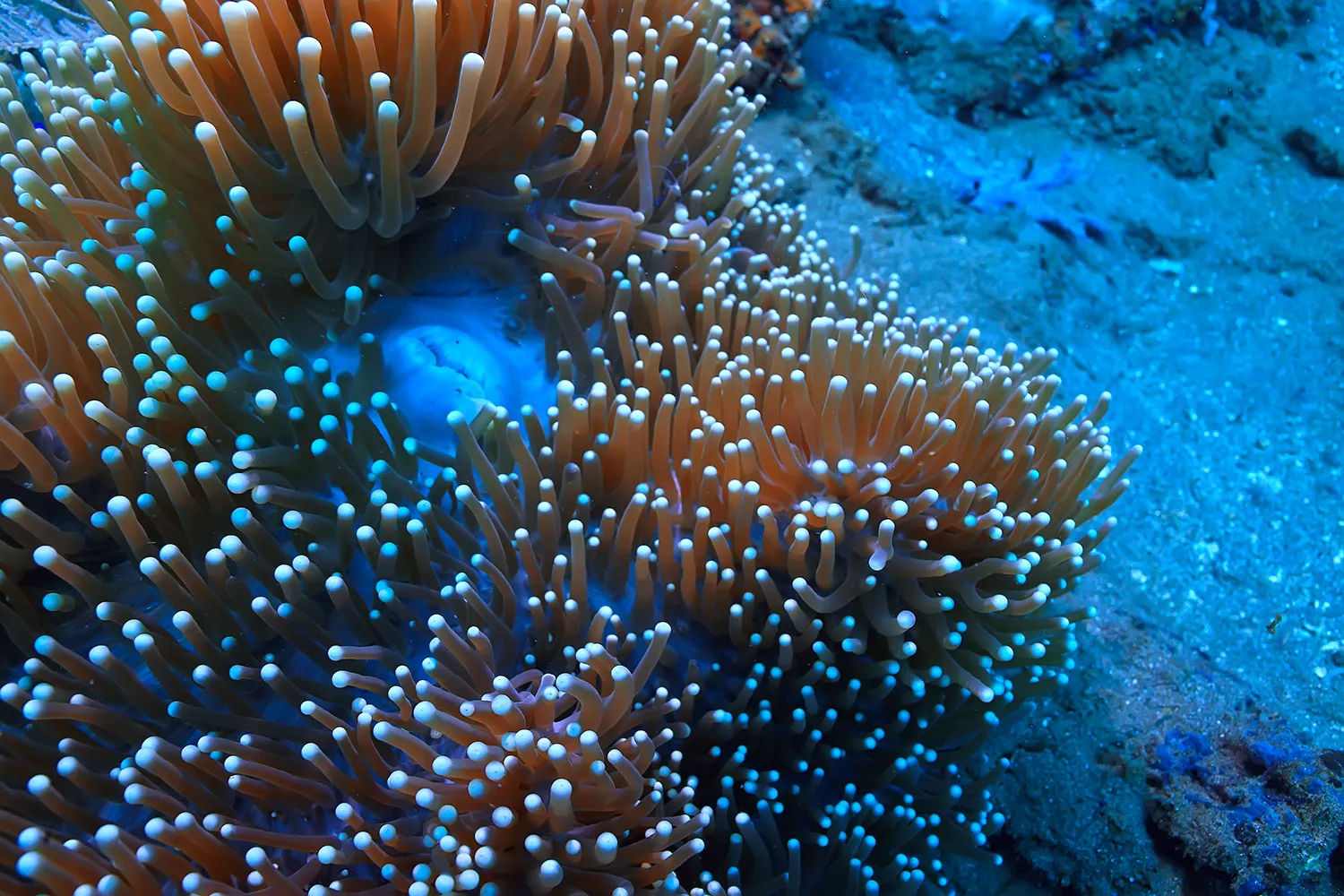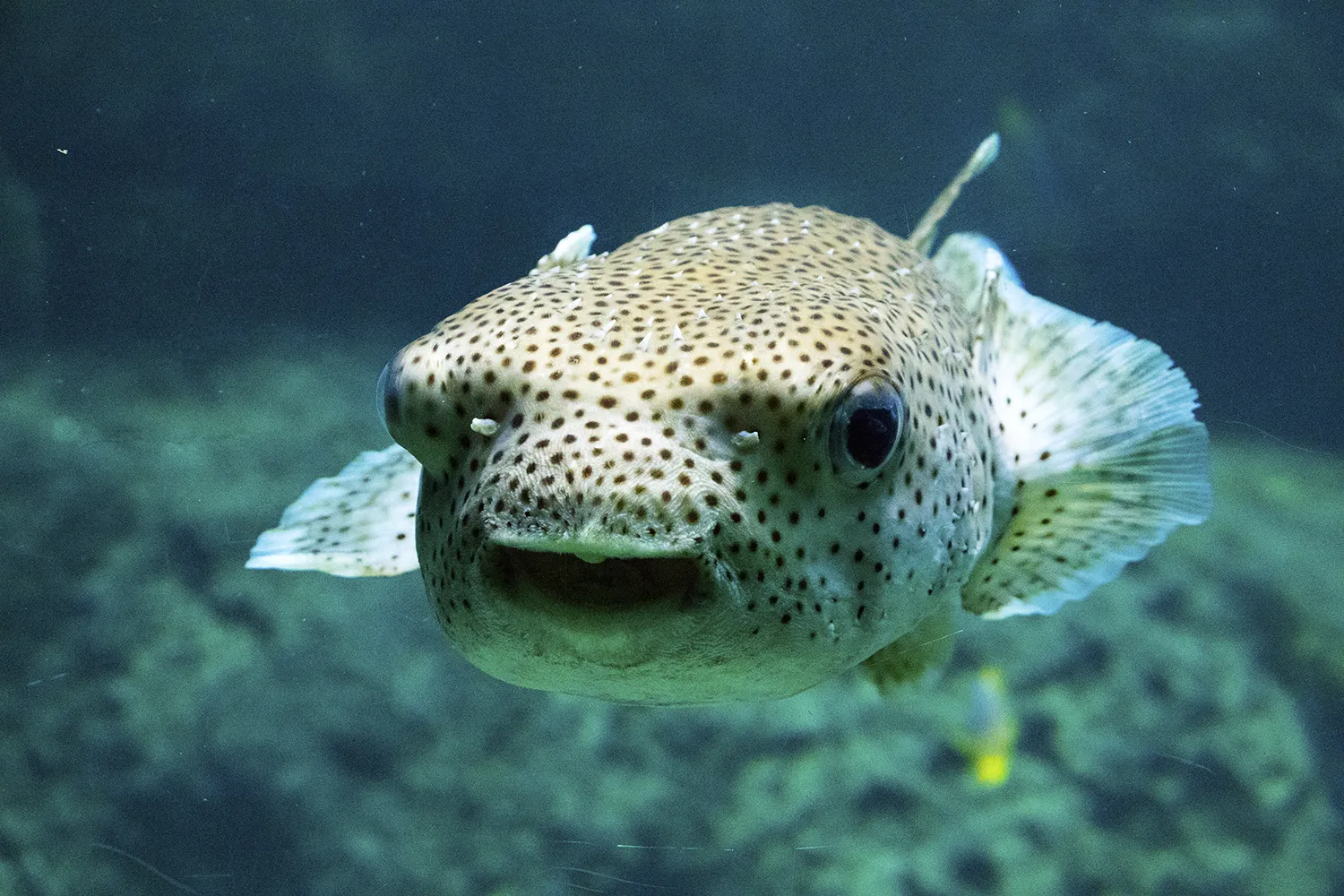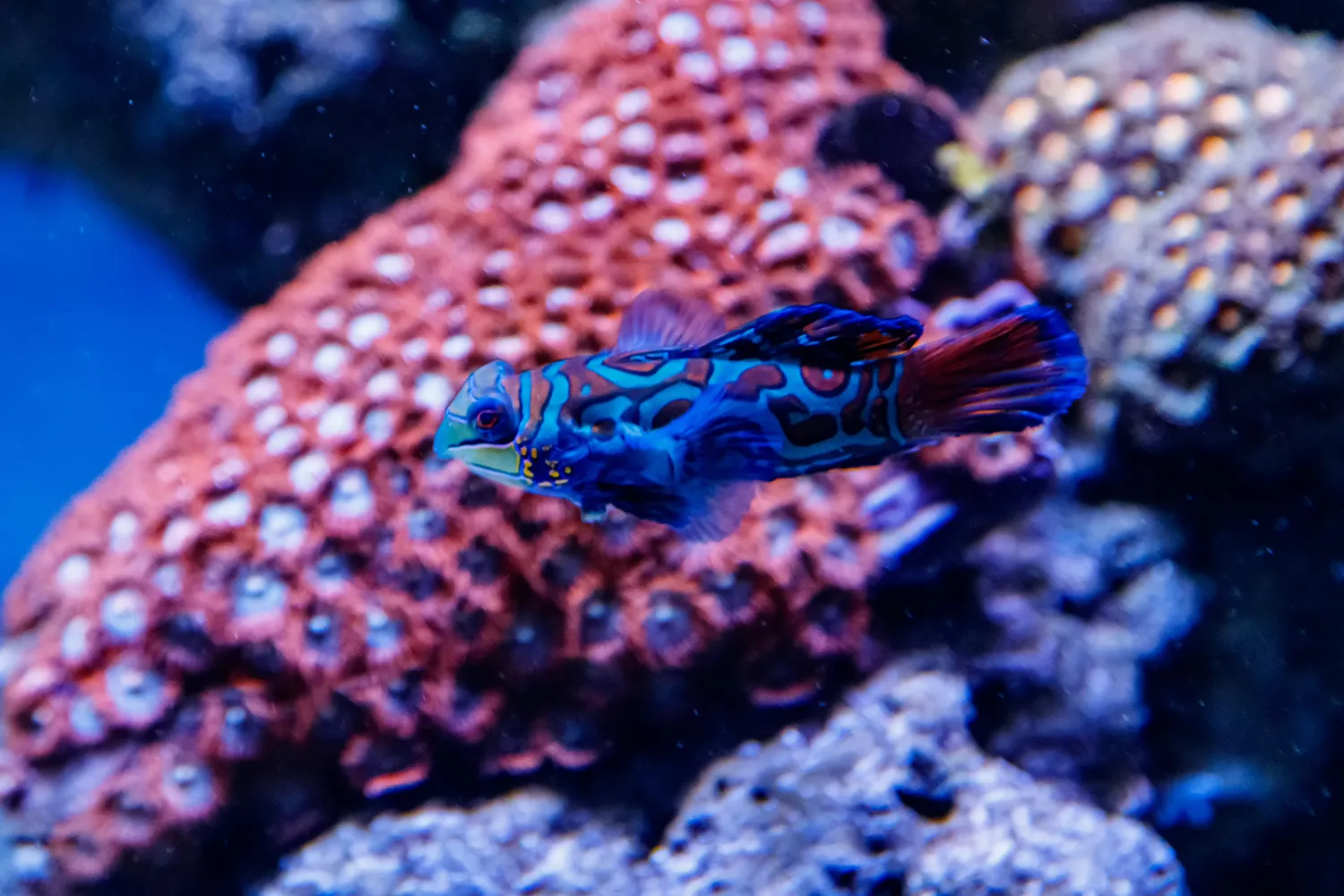Marine Biology A-Level Requirements (+ Additional Entry Criteria)

May 23, 2025 | 9 months | By Career
In This Article:
What qualifications do you need to be a Marine Biologist?
| Type | Minimum Requirements |
| UCAS Points | The ideal minimum of UCAS points is 128, with ABB grades, but some universities might consider students with a minimum of 112 (BBC grades) for contextual offers. |
| GCSEs | Most universities require a minimum of C in both English and Maths. |
| A-Levels | Typically, universities require ABB including Biology and one other science subject, such as Chemistry, Mathematics, Environmental Science, Geography, or Physics. |
| BTECs | DDM in a relevant subject such as Applied Science, Environmental Sustainability, or Countryside Management. A combination of BTECs and A-levels might be accepted. |
| International Baccalaurate | Most universities require a score of 32 points with Higher Level 5 in Biology and another science subject |
| Scottish Higher | AAAB including Biology and another science subject. Some universities accept a combination of Highers and Advanced Highers with lower grades for contextual offers. |
| Extracurriculars | Strong science-related extracurriculars such as volunteer work can enhance your application. |
What A-Levels do you need for Marine Biology?
Marine Biology requires a strong understanding of biological processes and their interactions with the environment. Biology A-Level, of course, is key, and it can be combined with Chemistry and Physics (great options for delving deeper into the relevant concepts) while Maths can provide the necessary knowledge to evaluate data and develop analytical skills.
If you are still wondering which subjects you need to pass to become a marine biologist, have a look at the following list and discover how each subject can contribute to your professional goals.
Find out how to take A-level exams privately to apply for marine biology at the most prestigious universities in the UK.

Core Subjects: Must-haves
Biology
Biology delves into the study of living organisms, covering essential topics such as cellular biology, genetics, evolution, and ecology. This subject provides a comprehensive understanding of biological processes and systems, fostering analytical and experimental skills through practical lab work.
Studying Biology is vital for Marine Biology as it builds foundational knowledge to understand ecosystems, organism interactions, and environmental impacts.
Chemistry
Chemistry encompasses the study of matter and its interactions, focusing on topics such as atomic structure, chemical bonding, thermodynamics, and organic chemistry. This subject focuses on problem-solving, laboratory techniques, and scientific reasoning.
Chemistry is key as it provides the ability to understand chemical processes in marine environments, analyse water quality, and study biochemical cycles within marine organisms.
Mathematics
Mathematics covers a range of topics including algebra, calculus, statistics, and mathematical modeling. The course develops logical thinking, problem-solving skills, and the ability to apply mathematical concepts to real-world situations.
Mathematics is also valuable for aspiring marine biologists as it helps in analysing ecological data, modeling population dynamics, and understanding statistical patterns in marine research, thereby enhancing quantitative research skills.
Physics
Physics investigates the principles governing the physical world, focusing on mechanics, waves, electricity, magnetism, and thermodynamics. The course emphasises experimental techniques, analytical skills, and the application of mathematical concepts to physical phenomena.
Physics is important as it aids in understanding oceanographic processes, the physical properties of seawater, and the dynamics of marine systems, contributing to a comprehensive understanding of the marine environment.
Geography
Geography explores physical and human geography, including landforms, climate systems, human-environment interactions, and spatial analysis. The course focuses on geographic information systems (GIS) and fieldwork to analyse environmental patterns and processes.
Geography is valuable for Marine Biology as it provides insights into coastal and marine environments, environmental conservation, and the impact of human activities on marine ecosystems.
Are you a mature student returning to education? Find out more about A-levels for adults online with CloudLearn.
A Guaranteed Pass in Your Exams!
CloudLearn are the only UK Online Learning centre to guarantee a pass for our students.
View our A-Level courses
Complementary Subjects: Good to have
Marine Science
Marine Science explores the physical, chemical, biological, and geological aspects of the ocean. It covers topics such as marine ecosystems, ocean currents, marine organisms, and human impacts on the marine environment.
While not essential to enter the Marine Biology university course, it is directly related to it and could enhance your application profile by providing specialised knowledge and demonstrating a true interest in the area.
How hard is Marine Science A-Level?
Though Marine Science may not be harder than Biology or other Science-related subjects, this A-level is quite new and not available in most exam providers. This means that students usually must study with the official textbook and don't have access to extra resources, which can be quite limiting if you feel the materials are not enough to understand the subject.
Geology
Geology involves the study of the Earth, its materials, and the processes that shape its structure over time. This includes topics like rock formation, plate tectonics, and Earth's history.
Understanding Geology can be beneficial for Marine Biology students as it offers insights into coastal processes, sediment dynamics, and the geological aspects of marine habitats.
Environmental Science
Environmental Science focuses on studying the natural world and finding solutions to ecological problems. It covers a range of topics, including ecology, pollution, resource management, and conservation strategies.
Knowledge in this field can be highly advantageous as it offers a broader perspective on how marine ecosystems are affected by changes in the environment and human activities. This subject is particularly beneficial for those interested in participating in ecological and sustainability initiatives.

Which A Level combination is best for Marine Biology?
Biology + Chemistry + Mathematics
A strong A Level combination for this career: Biology and Chemistry provide the scientific background, while Mathematics is valuable for developing analytical and quantitative skills. This combination is particularly beneficial for students interested in marine research, data analysis, and modeling ecological systems.
Biology + Chemistry + Physics
Choosing Biology, Chemistry, and Physics as your A Level combination is another great subject profile. Biology provides the foundational knowledge of living organisms and ecosystems. Chemistry helps in understanding the chemical processes within marine environments. Lastly, Physics offers insights into physical principles and processes, which are essential for studying marine ecosystems and the dynamics of marine life.
Is Marine Biology a good career choice?
Have you always been fascinated by marine life and ecology? If so, Marine Biology could be an excellent career choice for you. This field offers a variety of career paths, from conducting research studies in laboratories to caring for animals in aquariums and sanctuaries, educating the public about marine ecology, and participating in conservation efforts in your local area.
Due to its broad professional prospects, Marine Biology boasts a high employment rate, with 50% of recent graduates securing related jobs within 15 months and another 35% continuing their education. However, this field is quite competitive, and gaining admission to university marine biology courses can be challenging.
To enter the course of your dreams, you need to demonstrate strong evidence of your interest and preparedness for this career, which can be achieved through your A-levels. In this post, you will discover which A-Levels are needed for Marine Biology and the best subject combinations to help you stand out in your application.
Take a look at our A-level revision tips to learn how to study effortlessly for several subjects at once.
Fast-track Your Qualification
Get prepped for your exams quicker than you would at school!
Find out more
Which universities offer Marine Biology courses?
Though many students want to know what is the best place to study Marine Biology in the UK, there isn't an exact answer, as many universities offer similar degrees that excel at preparing students for their lives in this profession. Let's dive deeper into some of them:
St Andrews University |
Marine Biology BSc
|
University of Exeter |
BSc Marine Biology
|
University of Liverpool |
Marine Biology with Oceanography BSc
|
University of Southampton |
Marine Biology (Hons) BSc
|
University of East Anglia UEA |
BSc (Hons) Marine Sciences with a Placement Year
|
Always remember that, if you don't achieve the necessary grades on your first try, you can always retake A-levels to get a better result next time.
The first step is the most important one: Start with CloudLearn!
Choosing the right A Levels is a critical step toward a successful career in Marine Biology. To ensure you meet the entry requirements of top universities, a solid foundation in essential subjects is necessary.
CloudLearn offers a range of A Level courses designed to help you achieve the grades you need. With fast-track options, 1:1 tutors, and a guaranteed pass, you'll find everything you need for a seamless journey to excel in Biology, Chemistry, Mathematics, and more.
Start your journey towards a fulfilling career in Marine Biology with CloudLearn, studying at your own pace and from anywhere, without missing out on tutor support and peer interaction. Start studying today!

Frequently Asked Questions
Is Marine Biology an easy degree?
Marine Biology is a challenging but rewarding field that requires a strong foundation in science, particularly Biology and Chemistry. The coursework involves understanding complex ecosystems, conducting research, and applying scientific principles to marine environments. CloudLearn's A Level courses in Biology and Chemistry can help you build the necessary knowledge and skills to succeed in this demanding degree.
How long does it take to become a Marine Biologist?
Typically, it takes about three to four years to complete a Bachelor's degree in Marine Biology. Some students may choose to extend their studies with a placement year or study abroad, adding an additional year. Further specialisation through a Master's or PhD can take another two to six years.
What is the top salary for a Marine Biologist?
The top salary for a Marine Biologist can vary widely based on experience, location, and the sector in which they work. Highly experienced marine biologists, especially those in research or consultancy roles, can earn upwards of £60,000 per year.
What GCSEs should I pick for Marine Biology?
To pursue Marine Biology, focus on achieving strong grades in GCSEs, especially in English, Mathematics, and Science subjects such as Biology and Chemistry.
What experience do you need to be a Marine Biologist?
Practical experience is crucial for a career in Marine Biology. This can include internships, volunteer work, or participating in research projects related to marine environments. Engaging in science-related extracurricular activities during your studies can also be beneficial.
Can you do Marine Biology without a degree?
While it is possible to work in marine-related fields without a degree, becoming a Marine Biologist typically requires at least a Bachelor's degree in Marine Biology or a related science. Some entry-level positions might be available in support roles, but advanced research and professional positions generally require higher education.